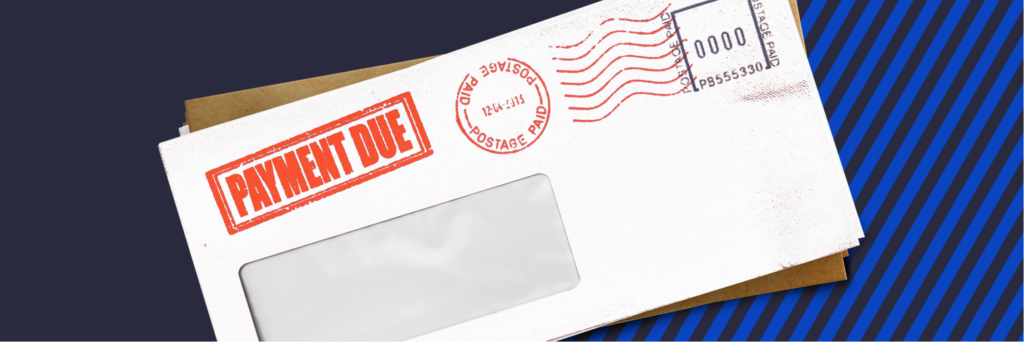According to the Economist, a recession is a period of significant decline in economic activity. Outputs and investment suffer, as do business profits and there is typically rising unemployment. To help ensure you and your family are least affected, here are five ways you can prepare for a recession and minimize its impact on your lives.
What is a Recession?
As mentioned, a recession is a significant decline in economic activity that lasts for months or even years. A recession is typically declared when a nation’s economy experiences negative gross domestic product (GDP), rising levels of unemployment, falling retail sales, and contracting measures of income and manufacturing for an extended period of time.
Recessions are considered an unavoidable part of the business cycle. They’re part of the regular cadence and contraction that occur in a nation’s economy. The most common examples of a recession are the global recession of the 2008 financial crisis and the Great Depression of the 1930s. The COVID-19 pandemic caused an economic downturn, which sparked fears of a recession.
What Causes a Recession?
A loss of business and consumer confidence causes recessions. Demand decreases in line with consumer confidence. Recessions occur because the US economy is cyclical. Generally speaking, economic growth continues until it reaches a peak of performance. That’s when the expansion becomes contraction resulting in a recession. Then activity gradually begins to expand again.
What Happens in a Recession?
A recession can impact you and your family’s daily life in a number of ways. Some common ways people are impacted include:
Cost of living increases
During a recession, household essentials such as groceries, gasoline and clothes are more expensive. Higher prices make it harder to make ends meet. This calls for strict budgets and cuts in discretionary spending.
Job losses
During a recession, companies often reduce their staffing levels to save money. You may risk losing your job or experience a reduction in hours. Competition for the few open roles gets tougher and it can take longer to find a job.
Health consequences
Job losses not only impact an individual’s employment and earnings, but also their health insurance coverage, retirement savings contributions, financial security, and health-related behaviors and outcomes. Those who lose their job are more likely to receive government “safety net” assistance, like disability insurance and supplemental security income benefits, even after the recession has ended.
Student loans
Younger adults may find it difficult finding or keeping a job during a recession. Higher levels of student loan debt can compound these recession-related challenges.
Opportunities
If you own or work in a business that provides goods and services that people need regardless of the economy, then count yourself lucky. Your business is considered recession proof and you won’t suffer as much during the downturn.
How to Prepare for a Recession
While there’s no way of preventing recessions from happening, there are practical steps you can take to weather the storm and prepare for the future. Here are five ways you can plan during uncertain times.
Reassess your budget
Become clear about where you stand financially. Make sure you have enough money to pay your bills and cover your essential spending. If your finances are looking tight, search for areas to cut back spending, bills that can be eliminated or loans refinanced.
Increase your savings
Put as much money as you can into your savings. As a rule of thumb, you should have three months’ worth of bills or $3,000 saved for an emergency, whichever is greater. A recession is a good time to get more aggressive and save for six months’ worth of bills or $6,000, whichever is greater. Keep your savings accessible and not invested to avoid the potential of loss from market fluctuations.
Pay off current debt
If you lose income during a recession you may not be able to pay every bill on time or in full every month. And that will have a direct impact on your credit scores. Therefore, you should prioritize how you pay your bills, so your available cash covers as many debts as you’re able. For example, pay your rent or mortgage on time to avoid eviction or foreclosure. Make your car payment on time too – especially if you need your car to get to work. Then focus on paying off your other debts like credit cards and student loans.
Continue with your contributions
Remember that investing is a long game where you benefit most by sticking it out over the bumps. It is important to continue contributing to your retirement fund and other important investments during a recession. Don’t give up just because the current environment looks bleak.
Consider alternate ways to make money
If you’re struggling to make ends meet or are worried about being laid off during a recession, it may be beneficial to pick up a side gig such as freelancing or working for a rideshare application. Having an extra stream of income can not only help in the event of a layoff but can make it easier to build your emergency savings while you’re still employed.
What Not to Do During a Recession
During a recession, it is important that you prepare for emergencies and do not put your finances at risk. Here are some things you do not want to do during an economic downturn.
Panic
Whatever you do, don’t panic. If your anxiety is triggered by sudden changes, see if there’s an upswing shortly after, or talk with a financial advisor.
Increase your debt
While it may be tempting to take on more debt during a recession when the interest rate on loans is typically lower, it is better to focus on paying off any debt you already have.
Become a cosigner
As a cosigner you risk taking on more debt. If the primary debt holder isn’t able to make a payment, you will be held responsible. Stay away from cosigning.
Take your job for granted
Always showcase your skills, regardless of whether you want to stay at your job a while or not. Highlight these skills during a recession and put off quitting until you have another opportunity lined up.
Not build an emergency fund
Build up your emergency fund so you can cover at least three to six months of your expenses.
Explore More Recession Resources
When times are tough, practicing these healthy financial strategies can help you stay afloat. They can show you how to stop living paycheck to paycheck, and give you a good idea of what to do if your expenses exceed your income. Start implementing healthy budgeting habits to prepare for any financial opportunities or emergencies.
Need financial advice or counseling? Looking to spend less on food? Out of work or underemployed? Find ways to save with SpringFour.
Recession FAQs
Can a recession be a good thing?
Even if it stings in the process, a recession can have a good impact on you and the economy as a whole. Some businesses, like maintenance services and grocery stores thrive during recessions. Inefficient companies must jettison excess inventory and cut their overheads during downturns, which improves efficiency overall. Recessions also balance everyday costs by resetting prices to manageable levels.
What is an example of a recession?
The most common examples of a recession are the global recession of the 2008 financial crisis and the Great Depression of the 1930s. The Gulf War Recession (July 1990 to March 1991) was partly caused by spiking oil prices during the First Gulf War.
What does a recession do to the average person?
During a recession, people may need to adjust their budgets to survive on less take-home pay. They may also have trouble finding new employment or second jobs because companies are hiring less people. Those fortunate enough to find new work often end up in jobs for which they are overqualified and underpaid. However, there are resources available to help you navigate through the impacts of a recession.
What happens to your money in the bank during a recession?
One of the safest places to keep your money during a recession is in an FDIC-insured bank account. You are likely already protected if you have checking and savings accounts with a traditional or online bank. If you’re unsure whether your accounts are FDIC-insured, you can check with your institution or look it up on the FDIC’s BankFind database.
Who benefits in a recession?
Industries that are considered relatively inelastic such as healthcare, food, consumer staples and basic transportation can all perform well in a recession. Rental agents, landlords, and property management companies can thrive during a recession due to the fact that renting is likely to become a more appealing option, if not the only one available.
Do prices rise or fall in a recession?
As the recession weakens the demand for things like cars, you may see a fall in prices accordingly. Stock prices typically plummet during a recession. The flight to safety can cause some investors to pull their money out of the stock market entirely.
The information provided on this website does not, and is not intended to, constitute legal, financial, or tax advice; instead, all information, content, and materials available on this site are for general informational purposes only. Information on this website may not constitute the most up-to-date legal, financial, tax or other information. This website contains links to other third-party websites. Such links are only for the convenience of the reader, user or browser; Avant does not recommend or endorse the contents of the third-party sites.
222 W Merchandise Mart Plaza, Suite 900, Chicago, IL 60654
Avant branded credit products are issued by WebBank.
Connecticut consumers: all marketing efforts are associated with Avant, LLC, Small Loan Company License #SLC-1246731
Avant of Washington, LLC DBA Avant is a wholly-owned and operated subsidiary of Avant, LLC Nationwide Multistate Licensing System #1440089.
Avant, LLC Nationwide Multistate Licensing System #1243761.
THIS IS A LOAN SOLICITATION ONLY. AVANT, LLC IS NOT THE LENDER. INFORMATION RECEIVED WILL BE SHARED WITH ONE OR MORE THIRD PARTIES IN CONNECTION WITH YOUR LOAN INQUIRY. THE LENDER MAY NOT BE SUBJECT TO ALL VERMONT LENDING LAWS. THE LENDER MAY BE SUBJECT TO FEDERAL LENDING LAWS.




